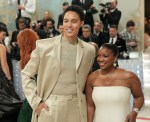Of course it’s easier to sit your child in front of an episode of “Sesame Street” or throw a Baby Einstein DVD into the player, but new research shows that it’s not actually making your baby any smarter than if you’d, say, picked up a book. So why spend all your money on videos, extra cable channels, and video games? Read the article below to pick up some ideas on using your cash more efficiently.
[From CNN.com]
Watching television does not make babies smarter, according to a study released this week in the journal Pediatrics, adding to existing research that challenges the usefulness of baby educational videos and DVDs.
Researchers from Children’s Hospital in Boston, Massachusetts, and Harvard Medical School reached this conclusion after monitoring more than 800 children from birth to 3 years of age.
“Contrary to parents’ perceptions that TV viewing is beneficial to their children’s brain development, we found no evidence of cognitive benefit from watching TV during the first two years of life,” the authors wrote.
Educational DVD and videos geared towards enriching babies and toddlers, such as “BabyGenius,” “Brainy Baby” or “Baby Einstein,” which proclaim to “encourage discovery and inspire,” have no benefits, researchers said.
This echoes a similar finding published in the August issue of Pediatrics. Researchers from the University of Washington and Seattle Children’s Hospital Research Institute found no evidence of benefit from baby DVDs and videos and suggested that it may be harmful. Infants who watched the videos understood fewer words than those who did not watch them.
Pediatrician Dr. Michael Rich, a co-author of the latest study from Boston, calls baby educational DVDs and videos “just wasted time.”
“At the very best, they steal time from much more productive cognitive developmental activities,” he said. “Ultimately, what it’s about is to make parents not feel guilty about an electronic baby sitter.”
The parents of the 872 children in the Boston study estimated the number of hours their toddlers spent in front of the television, including TV programs and DVDs. Researchers did not have data on what kinds of programs the toddlers were watching.
On average, babies at 6 months watched approximately 0.9 hours of TV per day. That number increased as the child aged: 1.2 hours at 1 year and 1.4 hours at 2 years.
The American Academy of Pediatrics recommends no screen media for children under the age of 2 years. Educational DVDs are tailored for babies as young as 3 months.
In the Harvard study, two I.Q.-related tests were administered to the children: the Peabody Picture Vocabulary Test III, which indicates how many words the child understands and uses, and the Wide-Range Assessment of Visual Motor Ability test, which presents puzzles and peg boards to test cognitive abilities.
Babies who spent more time watching TV had lower language and visual motor skills at age 3. But when results were adjusted for household income and education levels, the association did not appear.
Lead author Marie Evans Schmidt and her colleagues “did not find evidence of harm or benefit of TV viewing.”
To read the rest of this article, click here.
Should you reward your kids for their academic efforts?
Sometimes one-on-one time with your child is next to impossible – when you have a ton of kids!





















